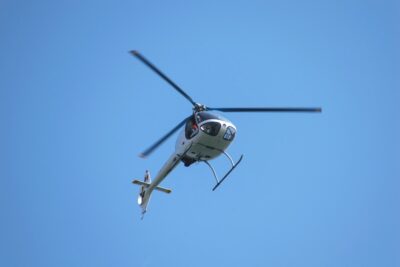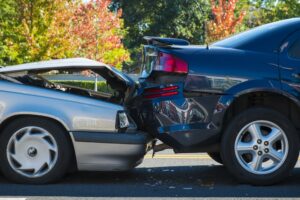
If you’re in a helicopter crash, seek medical help for yourself and others if possible, and then contact your legal team to get immediate legal assistance.
Helicopter crashes, while less common than car or plane accidents, can be incredibly traumatic and devastating. The unique dynamics and operational environments of helicopters contribute to the complexity and severity of these incidents.
Understanding what happens during a helicopter crash, the immediate aftermath, and the legal options available to survivors and families of victims is crucial for those affected by such tragedies. An Atlanta personal injury lawyer can seek damages from the liable party.
Immediate Impact and Survival
When a helicopter crash occurs, the immediate impact is often violent and sudden. Helicopters operate in a variety of environments, including urban areas, remote locations, and offshore sites. The nature of the crash and the surrounding environment significantly influence the consequences and survival outcomes. Here are key factors to consider:
Crash Dynamics
Helicopters rely on rotors for lift and propulsion, and any malfunction in these systems can lead to a loss of control. Factors contributing to crashes include mechanical failures, pilot error, weather conditions, and bird strikes. Upon impact, passengers may experience extreme forces, leading to severe injuries.
Injuries and Fatalities
Injuries sustained in a helicopter crash can range from minor to catastrophic. Common injuries include traumatic brain injuries, spinal cord injuries, fractures, burns, and internal injuries. The confined space and potential for post-crash fires increase the risk of serious harm. Unfortunately, fatalities are also common in severe crashes due to the high impact forces and potential for fire or drowning (in the case of water landings).
Emergency Response
The immediate response to a helicopter crash is critical for survival. Rapid deployment of emergency services, including medical personnel, firefighters, and search and rescue teams, can make a significant difference. Survivors require urgent medical attention, and the complexity of accessing crash sites can complicate rescue efforts.
Get the strong arm
Medical Treatment and Rehabilitation
Survivors of helicopter crashes often face long and challenging recoveries. The nature and extent of injuries dictate the course of medical treatment and rehabilitation required.
Immediate Medical Care
Following a helicopter crash, survivors are typically transported to the nearest trauma center. Emergency medical care focuses on stabilizing patients, managing life-threatening injuries, and preventing complications. Surgical interventions may be necessary to address fractures, internal injuries, and burns.
Long-term Rehabilitation
The road to recovery can be long and arduous. Survivors may need extensive rehabilitation, including physical therapy, occupational therapy, and psychological counseling. The goal is to restore as much function and independence as possible, though some injuries may result in permanent disabilities.
Psychological Impact
The psychological impact of surviving a helicopter crash can be profound. Survivors often experience post-traumatic stress disorder (PTSD), anxiety, depression, and other mental health challenges. Counseling and support groups play a vital role in helping survivors cope with their experiences and regain emotional stability.
How Likely Are Helicopter Crashes?
Helicopter crashes, while serious and often catastrophic when they occur, are relatively rare compared to other types of vehicular accidents. However, if you or a family member has been involved in a helicopter crash, you can get financial compensation for your damages and suffering. Don’t wait to get in touch with one of the attorneys at John Foy & Associates to get your free consultation and to start your legal claim.
Legal Considerations
Helicopter crashes often lead to complex legal cases involving multiple parties. Determining liability and securing compensation for injuries and losses requires thorough investigation and legal representation.
Determining Liability
Several parties may be liable in a helicopter crash, including:
- Helicopter operator: The company operating the helicopter may be responsible if the crash resulted from pilot error, inadequate maintenance, or operational failures.
- Manufacturer: If a mechanical failure or design flaw contributed to the crash, the helicopter manufacturer could be held liable.
- Maintenance providers: Companies responsible for maintaining and servicing the helicopter may be liable if negligence or substandard work led to the crash.
- Third parties: In some cases, third parties such as air traffic controllers, other aircraft operators, or entities responsible for maintaining airspace safety may share liability.
Compensation for Victims
Victims of helicopter crashes may be entitled to compensation for various damages, including:
- Medical expenses: Medical expenses can add up quickly for past, present, and future medical treatment related to crash injuries.
- Lost wages: You can gain compensation for income lost due to the inability to work during recovery and potential loss of future earning capacity.
- Pain and suffering: You can gain compensation for physical pain, emotional distress, and diminished quality of life.
- Wrongful death: Families of victims who perished in the crash can seek compensation for loss of companionship, funeral expenses, and loss of financial support.
Contact John Foy & Associates if You or a Family Member Has Been in a Helicopter Accident
For those seeking justice and compensation after an unfortunate helicopter incident, high-quality legal representation is crucial. John Foy & Associates offers the experience, compassion, and dedication needed to effectively handle helicopter crash cases.
If you or a loved one has been involved in such an incident, contact John Foy & Associates for the support and legal help you need to move forward. Our goal is to get you the results you’re hoping for.
(404) 400-4000 or complete a Free Case Evaluation form





